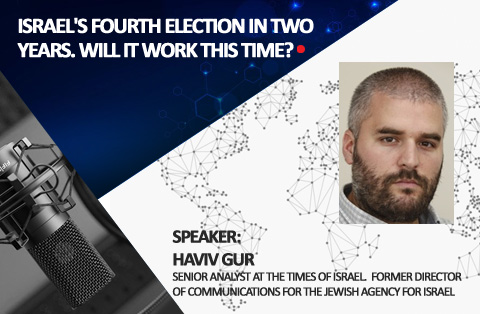   |
|
 |
|
|
CENTER FOR ADVANCED HOLOCAUST STUDIES INTERNATIONAL CALL FOR APPLICANTS 2008 Summer Research Workshop July 14-25, 2008 Studying Antisemitism in the 21st Century: Manifestations, Implications, Consequences The Center for Advanced Holocaust Studies (CAHS) of the United States Holocaust Memorial Museum (USHMM) announces an international scholarly workshop, Studying Antisemitism in the 21st Century: Manifestations, Implications, Consequences, scheduled to take place at the United States Holocaust Memorial Museum in Washington, DC, from Monday, July 14, through Friday, July 25. Established in 1999, the Center’s Summer Research Workshop program provides an environment in which groups of scholars working in closely-related areas of study but with limited previous face-to-face interaction can gather to discuss a central research question or issue; their research methodologies and findings; the major challenges facing their work; and potential future collaborative scholarly ventures. The objectives of this program are to explore (1) the most fruitful directions for new research about the history of antisemitism, to ensure a firm foundation from which to address contemporary manifestations; (2) what we know and understand or do not understand about contemporary manifestations of antisemitism; (3) intellectual and campus-based manifestations of antisemitism as well as the media through which they are spread; and (4) the implications and consequences of unchecked antisemitism in intellectual discourse and potential responses to it within the scholarly community. To this end, the workshop will be primarily devoted to topical discussion and 45-minute presentations (in English) by all participants. Successful applicants will be required to submit an overview (10-15 pages) of their presentation to the Center by June 18, 2008, for distribution to the other participants, and to complete required reading assignments prior to the start of the workshop. While the main purpose of the workshop is to promote discussion, debate, and networking, participants will have opportunities to access the Museum’s extensive library, archives, and other research collections. Information on Museum resources is available at http://www.ushmm.org/ The workshop will be led by Professors Alvin Rosenfeld and Bernard Harrison, bringing together a literary and Holocaust studies scholar with a philosopher to provide a stimulating encounter of contrasting methods and approaches. Dr. Rosenfeld is Professor of English and Jewish Studies and Director of the Institute of Jewish Culture and the Arts at Indiana University. He serves as Chair of the United States Holocaust Memorial Council’s Academic Committee. Professor Rosenfeld is author of many works on Jewish writers and the literature of the Holocaust. His recent series of essays on rising antisemitism around the world include “Anti-Americanism and Antisemitism: A New Frontier of Bigotry” (2003), “Anti-Zionism in Great Britain and Beyond: A Respectable Antisemitism” (2004), and, most recently, “Progressive Jewish Thought and the New Antisemitism” (2006). Bernard Harrison is E. E. Erickson Professor Emeritus of Philosophy at the University of Utah and former Professor of Philosophy at the University of Sussex in Brighton, England. His work has ranged between philosophy and literature, ethics, the philosophy of language and Continental Philosophy. He is author of the recent book The Resurgence of Anti-Semitism: Jews, Israel, and Liberal Opinion (2006). A maximum of fourteen scholars will be selected. Applicants must be enrolled in or faculty or staff of an academic or research institution. Applicants in transition between appointments must provide a detailed explanation. Ability to present in English is required. Applications must be submitted in English and include: (1) a 750-word description of the applicants topic of study as it specifically relates to the workshop objectives; (2) a curriculum vitae; and (3) a supporting letter from a departmental chair, dean, or director of research that addresses the candidates qualifications and purpose for attending the workshop. For non-local participants, the Center will defray the cost of: (1) direct travel to and from each participants home institution and Washington, DC; (2) lodging for the duration of the workshop; and (3) $500 toward the cost of incidental expenses, which will be distributed within 2-4 weeks of the workshops conclusion. Non-U.S. citizens will be responsible for obtaining the necessary visas to attend the workshop. Local participants will receive a stipend of $200 for the two weeks. Applications must be postmarked or received in electronic form no later than January 15, 2008, and sent to: University Programs, Center for Advanced Holocaust Studies, United States Holocaust Memorial Museum, 100 Raoul Wallenberg Place, SW, Washington, DC 20024 (Fax: 202-479-9726; E-mail: university_programs@ushmm.org For questions, contact Dr. Suzanne Brown-Fleming at: (202) 314-7802 or sbrown-fleming@ushmm.org Candidates will be notified of the results of the application process by February 7, 2008. This workshop has been made possible by the Judith B. and Burton P. Resnick Fund for the Study of Antisemitism, Center for Advanced Holocaust Studies. To learn more about past programs, visit our website >> |
|
U.S. Holocaust Museum Center for Advance Holocaust Studies Announces International Call for Applicants for 2008 Summer Research Workshop
- By SPME
- December 25, 2007
U.S. Holocaust Museum Center for Advance Holocaust Studies Announces International Call for Applicants for 2008 Summer Research Workshop
- Posted In:
- Campus News & Climate
AUTHOR
SPME
Scholars for Peace in the Middle East (SPME) is not-for-profit [501 (C) (3)], grass-roots community of scholars who have united to promote honest, fact-based, and civil discourse, especially in regard to Middle East issues. We believe that ethnic, national, and religious hatreds, including anti-Semitism and anti-Israelism, have no place in our institutions, disciplines, and communities. We employ academic means to address these issues.





